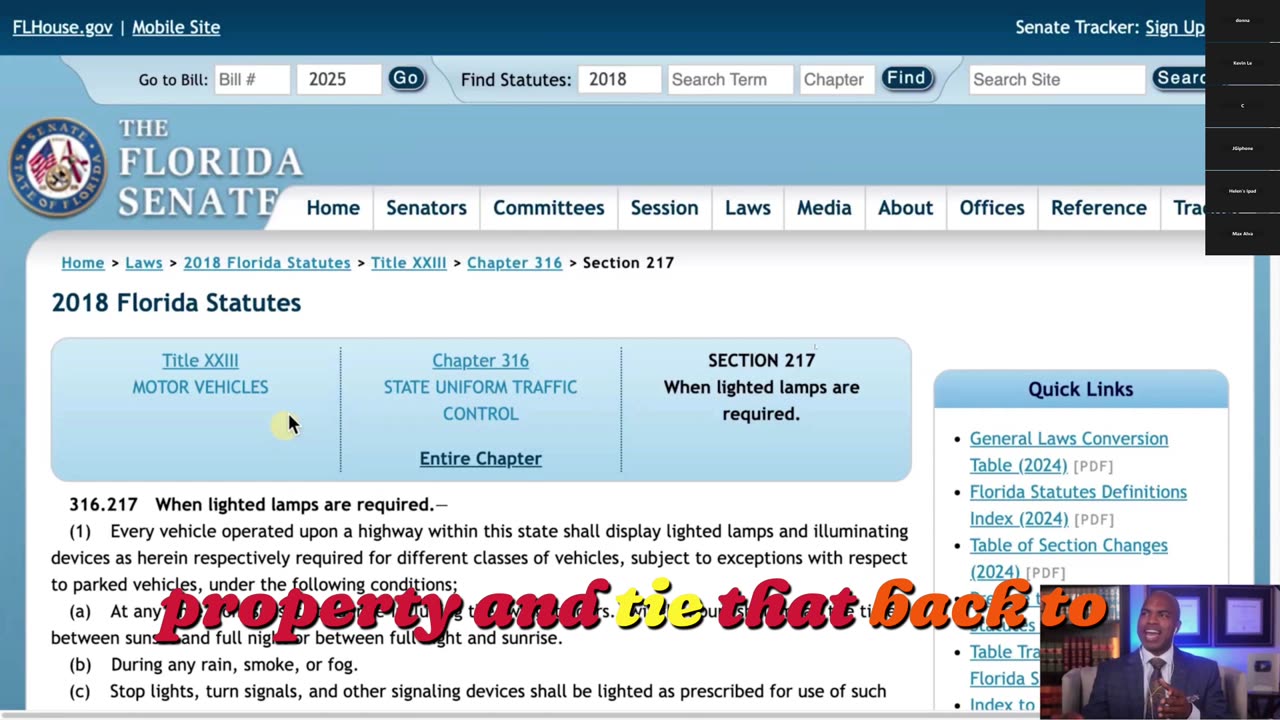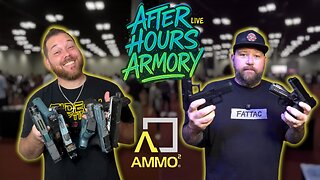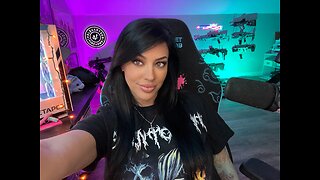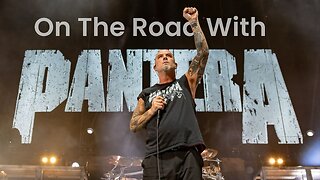Premium Only Content

2025-07-31 Tao of Law Class with Eddie Craig
Make a donation to Eddie (which is always appreciated):
https://www.ruleoflawradio.com/donations.htm
Purchase a class subscription here:
www.logosradionetwork.com or www.ruleoflawradio.com
>Texas Codes & Rules Online:
>>State Statutes: http://www.statutes.legis.state.tx.us/
>>>Admin. Code: http://texreg.sos.state.tx.us/public/readtac$ext.viewtac
>>>>Rules of Evidence: https://www.texasevidence.com
>>>>>Rules of Civil Proc.: https://www.txcourts.gov/media/1446498/trcp-all-updated-with-amendments-effective-may-1-2020.pdf
Tao of Law is inviting you to a scheduled Zoom meeting.
** NOTICE **
>Mock Trial August 7, 2025 are free and open to all.
>>Study these files: https://drive.proton.me/urls/F3GSASQAHW#BgTEekrI9ySU
>>>Be a Judge, witness, or Officer
Join Zoom Meeting
https://us02web.zoom.us/j/87067120504?pwd=mUaThtxtUBwixa6ccerbnPI5qcqrln.1
Meeting ID: 870 6712 0504
Passcode: 868063
Summary
Legal strategies and critical thinking techniques for challenging accusations and analyzing statutes in court cases.
Highlights
1. Legal Analysis of Statutes and Ordinances
• Eddie Craig emphasized the importance of critically analyzing statutes by breaking them down, reading definitions, and understanding the entire body of law that interacts with the statute.
• The discussion revolved around the Florida statute 316.217, focusing on the operative word "during" and its implications for legal interpretation.
• Eddie explained how to challenge misinterpretations of statutes, using examples like "inclement weather" and "rainy conditions," which were not part of the statute's language.
• Participants were taught to focus strictly on the actual wording of statutes and avoid introducing new terms or interpretations that are not explicitly stated.
2. Cross-Examination Techniques
• Eddie provided detailed guidance on crafting leading questions for cross-examination, emphasizing that open-ended questions should be avoided.
• He explained how to structure questions to disprove specific elements of the case, such as public health danger, property damage, or the congregation of 11 or more adult animals.
• Participants were advised to focus on the three specific nuisance violations outlined in the ordinance and avoid introducing irrelevant or undefined terms.
• Eddie demonstrated how to use video evidence effectively during cross-examination to challenge the prosecution's claims.
3. Opening and Closing Statements in Court
• Eddie critiqued Jane's draft opening statement, pointing out issues like accepting partial blame and introducing irrelevant topics.
• He provided a framework for crafting effective opening and closing statements, focusing on the lack of evidence and the failure of the city attorney to prove any elements of the alleged offenses.
• Participants were advised to maintain a professional tone and avoid emotional or accusatory language in their statements.
• Eddie emphasized the importance of requesting a directed verdict if the prosecution fails to present sufficient evidence.
4. Handling Neighbor Disputes and Harassment
• Jane shared her ongoing issues with a neighbor who has filed multiple complaints against her, leading to legal cases over six years.
• Eddie advised Jane to document all interactions and compile video evidence to build a case for harassment or stalking.
• The group discussed the possibility of filing a lawsuit for a permanent injunction or protective order against the neighbor.
• Eddie highlighted the importance of using evidence to demonstrate a pattern of targeting and harassment by the neighbor.
5. Legal Remedies for Malicious Prosecution
• Eddie explained the concept of malicious prosecution, focusing on cases where prosecutors or police knowingly pursue baseless charges.
• He clarified the differences in immunity between city attorneys and state/county prosecutors, noting that city attorneys lack prosecutorial immunity.
• Participants discussed the challenges of holding prosecutors accountable for intentional wrongdoing, such as fabricating evidence or withholding exculpatory information.
6. Federal vs. State Jurisdiction in Legal Cases
• Eddie explained the distinction between federal and state jurisdiction, emphasizing that federal courts cannot prosecute state law violations and vice versa.
• He discussed scenarios where state laws based on federal laws could be moved to federal court for adjudication.
• Participants were advised to keep state and federal claims separate when filing lawsuits to avoid jurisdictional conflicts.
7. Investigating Procedural Violations in Court Systems
• Chris raised concerns about procedural violations in Colorado's first appearance centers, questioning their legitimacy and adherence to criminal procedure rules.
• Eddie advised creating a roadmap of statutes and cross-referencing them to identify discrepancies in the process.
• The group discussed how courts often streamline processes for efficiency, potentially violating due process rights.
• Eddie emphasized the importance of challenging these practices by understanding and mapping the relevant laws and procedures.
8. Practical Tools for Evidence Collection
• Jane and Eddie discussed the use of cameras for documenting neighbor interactions, including game cameras and Blink cameras with cloud storage.
• Eddie recommended using cameras with local SD card storage and ensuring they are placed out of reach to prevent tampering.
• The group highlighted the importance of having multiple recording devices to capture evidence effectively, especially when dealing with a neighbor who is aware of recording times.
9. Preparing for Mock Trial
• Eddie announced plans for a mock trial in the next class, encouraging participants to review the ordinance and prepare for their roles.
• He emphasized the importance of understanding the case details and being ready to play different parts during the trial.
• Participants were advised to revisit the video and class discussions to ensure they are well-prepared for the mock trial exercise.
Next steps
1. Download Adobe Acrobat Reader to access all PDF files in Jane's specific folder: Rebecca
2. Review the ordinance and prepare for the mock trial by understanding the elements and predicates discussed in the meeting: All participants
3. Participate in the mock trial during the next class and be prepared to play assigned roles: All participants
4. Review the link sent by Eddie on how to write a good opening statement in a criminal case: Jane
5. Set up cameras around Jane's property with audio and video recording capabilities to document neighbor interactions: Jane
6. Compile videos of neighbor interactions and incidents for potential use in future legal actions: Jane
7. Prepare for the en banc petition by outlining errors made by the three-judge panel and citing relevant legal points and Supreme Court cases: Chris
8. Investigate the process and legitimacy of the "first appearance centers" in Colorado by contacting them and reviewing the Code of Criminal Procedure: Chris
-
 LIVE
LIVE
Lofi Girl
3 years agolofi hip hop radio 📚 - beats to relax/study to
269 watching -
 21:39
21:39
TruthStream with Joe and Scott
2 days agoJoe, Scott and Lewis, Censorship and the Nov 8th event in Carlsbad California!
7.53K2 -
 22:47
22:47
The Pascal Show
1 day ago $0.21 earnedTHEY’RE HIDING EVIDENCE?! Candace Owens EXPOSES Foreign Connection In Charlie Kirk Shooting
34.3K39 -
 7:44:50
7:44:50
SpartakusLIVE
10 hours agoThe Duke of Nuke CONQUERS Arc Raiders
168K5 -
 1:05:26
1:05:26
Man in America
12 hours ago“Poseidon” Doomsday Sub, Microplastics & The War on Testosterone w/ Kim Bright
23.5K21 -
 2:23:54
2:23:54
DLDAfterDark
8 hours ago $0.16 earnedGun Talk LIVE! Thursday At The Armory! Feat. Josh of BDG&G & DLD
26.6K4 -
 2:50:16
2:50:16
TimcastIRL
9 hours agoSupreme Court May OVERTURN Gay Marriage, SCOTUS Hearing Set For TOMORROW | Timcast IRL
232K132 -
 4:06:47
4:06:47
Barry Cunningham
10 hours agoBREAKING NEWS: PRESIDENT TRUMP HOSTS A STATE DINNER | FOX NATION PATRIOT AWARDS!
109K71 -
 4:04:59
4:04:59
Alex Zedra
8 hours agoLIVE! New Game | The See Us
33.6K1 -
 1:56:30
1:56:30
ThisIsDeLaCruz
8 hours ago $0.08 earnedOn The Road With Pantera
36.8K3